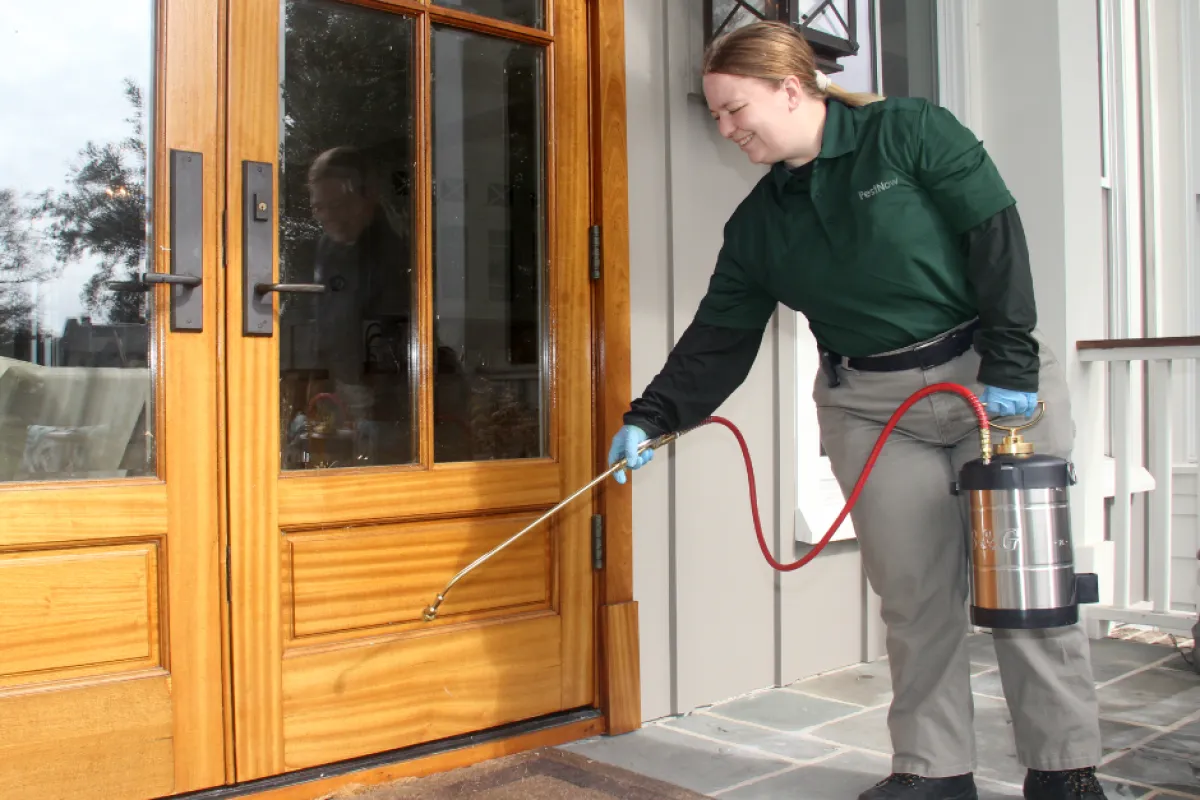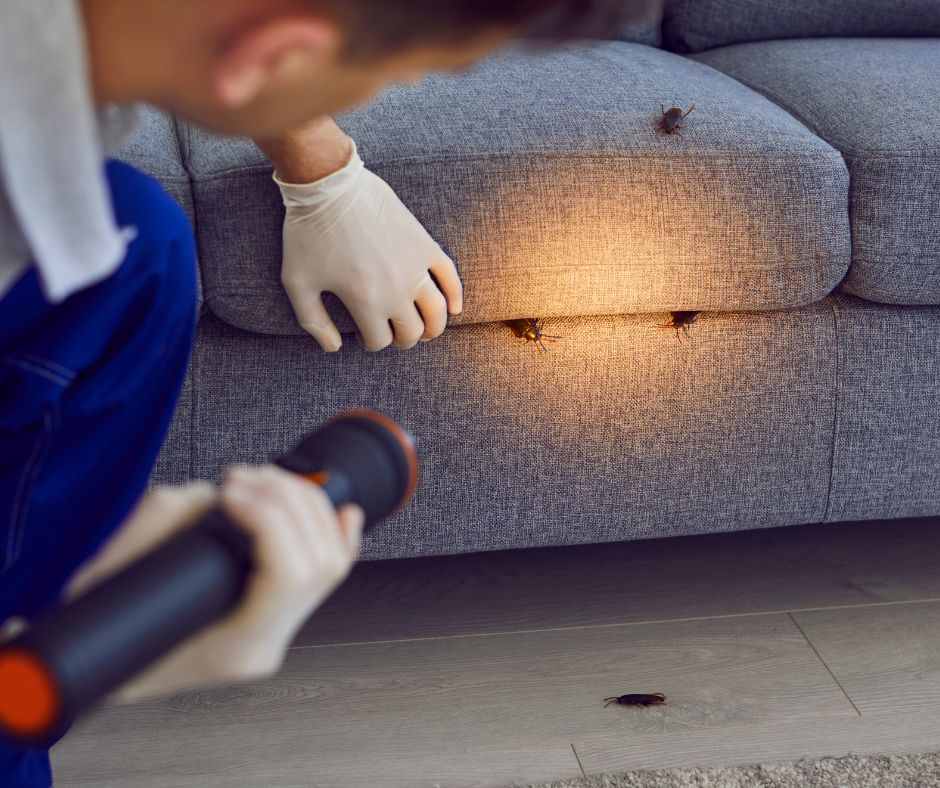Top-tier Mosquito Control Services for a Comfortable Outdoor Living Space
Explore Ingenious Solutions for Pest Control and the Best Therapy Practices
The landscape of parasite control is advancing, noted by the assimilation of sophisticated modern technologies and lasting practices that guarantee effective management of undesirable bugs. From wise traps geared up with IoT capabilities to the utilization of drones for specific bug recognition, these technologies use significant advantages over traditional approaches. Moreover, the adoption of environmentally friendly biopesticides alongside preventative strategies encourages house owners to proactively address bug problems. As these techniques gain grip, one need to consider the effects and potential performance of these techniques in a globe progressively concentrated on sustainability. What does this mean for the future of parasite control?
Emerging Technologies in Bug Control
Over the last few years, the pest control market has actually witnessed a considerable improvement driven by emerging technologies. Advancements such as smart catches, IoT tools, and progressed information analytics have actually redefined standard parasite management practices. Smart traps outfitted with sensing units can detect insect activity in real-time, allowing for timely intervention and decreasing the dependence on chemical treatments.
In addition, the integration of Web of Things (IoT) innovation enables insect control experts to keep an eye on problems from another location. By making use of information from connected gadgets, business can evaluate patterns and predict parasite habits, resulting in much more efficient and targeted services. This data-driven method not only enhances efficiency but additionally minimizes waste and environmental influence.
In addition, using drones for evaluating big areas provides an unique technique for recognizing parasite hotspots. These airborne gadgets offer high-resolution imagery, facilitating quicker analyses and making it possible for more strategic bug control planning.
In addition, innovations in biotechnology, such as genetically customized organisms (GMOs) and biopesticides, existing appealing alternatives to conventional chemicals. These technologies intend to interfere with pest life cycles while maintaining helpful organisms, therefore fostering an extra well balanced ecosystem. Generally, these emerging modern technologies are reinventing pest control, making it extra reliable, precise, and sustainable.
Eco-Friendly Pest Monitoring Methods
As the parasite control industry welcomes innovative innovations, there is an increasing focus on environmentally friendly parasite management methods that focus on environmental wellness. These methods aim to minimize making use of unsafe chemicals while successfully managing pest populaces.
One prominent approach is the use of all-natural chemicals stemmed from plant removes, which are much less toxic to non-target types and human beings. For instance, neem oil and diatomaceous planet are obtaining popularity for their effectiveness versus a selection of pests without positioning considerable dangers to the ecological community.

In addition, habitat adjustment plays an essential role in pest administration. Cockroach exterminator Port Charlotte. By modifying the environment-- such as eliminating standing water or preserving proper cleanliness-- insect environments can be interfered with, minimizing invasion chance
Lastly, educating consumers concerning safety nets, such as sealing entry points and appropriate waste disposal, can additionally enhance environmentally friendly insect administration initiatives. Jointly, these methods stand for a considerable change towards sustainable practices in bug control, making sure both effectiveness and environmental security.

Integrated Insect Administration Strategies
Integrated Insect Administration (IPM) uses a complex approach to pest control that integrates numerous approaches to minimize parasite populations while minimizing ecological effect. This method stresses using biological, social, mechanical, and environment control approaches, along with tracking and evaluation techniques to make enlightened decisions.
Organic control entails the introduction of natural predators or parasites that target particular bug varieties, consequently maintaining environmental balance. Cultural practices incorporate plant turning, intercropping, and appropriate hygiene to interrupt pest life process and minimize habitat suitability. Mechanical methods, such as barriers and catches, literally protect against parasites from infesting areas of concern.
Normal tracking is critical in IPM, permitting practitioners to analyze bug populations and review the performance of carried out techniques. This data-driven strategy makes it possible for timely treatments, decreasing the requirement for more drastic actions. By incorporating these methods, IPM not only addresses existing pest concerns however also cultivates lasting sustainability and durability versus future invasions.
Cutting-edge Chemical Therapies
Chemical treatments in bug control have evolved significantly, driven by innovations in innovation and a much deeper understanding of pest behaviors. Modern formulas are designed to target certain bugs while minimizing the effect on non-target varieties and the atmosphere. Cockroach exterminator Port Charlotte. Innovations consist of the growth of biopesticides, which utilize all-natural microorganisms or their derivatives, supplying a much safer alternative to standard chemical representatives
Additionally, the intro of slow-release formulations improves the efficiency of therapy by guaranteeing longer-lasting defense. These innovative chemicals can be applied in particular areas, lowering the general quantity called for and reducing prospective direct exposure to humans and family pets.
Another considerable innovation is the assimilation of precision application innovation, which uses drones and robot systems to deliver treatments with high accuracy. This technique not only reduces chemical waste yet additionally significantly improves the efficiency of bug control procedures.
In addition, comprehending bug resistance devices has actually caused the you can look here creation of novel energetic components that can get over these challenges. As the industry proceeds to introduce, the focus continues to be on developing safer, more reliable chemical therapies that line up with sustainable pest administration practices. This progress sustains the objective of preserving healthy environments while effectively controlling pest populaces.
Preventative Procedures for Homeowners
Effective parasite control begins long before a problem takes place, highlighting the value of preventative actions for property owners. Cockroach exterminator Port Charlotte. Applying proactive methods can considerably reduce the threat of insects invading your home
First, preserve proper cleanliness by routinely cleansing kitchens, dining areas, and other spaces where food exists. Shop food in closed containers and promptly dispose of medicine for pest control waste. On a regular basis cleaning and vacuuming can also remove prospective pest habitats.
Following, check your home for any kind of structural vulnerabilities. Seal cracks and holes in home windows, doors, and wall surfaces to avoid insects from going into. Pay very close attention to areas like attic rooms and cellars, where wetness can draw in undesirable site visitors.
Landscape design plays an essential duty in parasite prevention. Maintain plant life trimmed and away from your house, and ensure appropriate water drainage to avoid standing water, which can attract insects.

Last but not least, take into consideration regular expert insect examinations. These professionals can determine potential problems prior to they rise, giving tailored remedies to protect your home. By taking on these preventative actions, house owners can develop an inhospitable environment for parasites, making sure a pest-free and comfy home.
Conclusion
In summary, the assimilation of innovative technologies and green practices in bug control offers substantial developments in the sector. Arising services such as smart traps, drones, and biopesticides exemplify a change towards sustainable administration. Moreover, the execution of incorporated insect management strategies and preventative procedures encourages property owners to properly reduce parasite professional pest control products concerns while promoting environmental equilibrium. This holistic technique not just enhances efficiency yet additionally reduces the ecological effect related to traditional bug control approaches.
The landscape of parasite control is advancing, noted by the combination of innovative innovations and lasting methods that guarantee efficient administration of undesirable insects.In current years, the parasite control market has witnessed a substantial change driven by emerging modern technologies.Chemical therapies in pest control have actually progressed considerably, driven by advancements in modern technology and a deeper understanding of pest actions.In summary, the assimilation of cutting-edge technologies and eco-friendly techniques in pest control offers considerable advancements in the industry. The implementation of integrated parasite management methods and preventative actions encourages house owners to effectively mitigate bug issues while promoting environmental equilibrium.